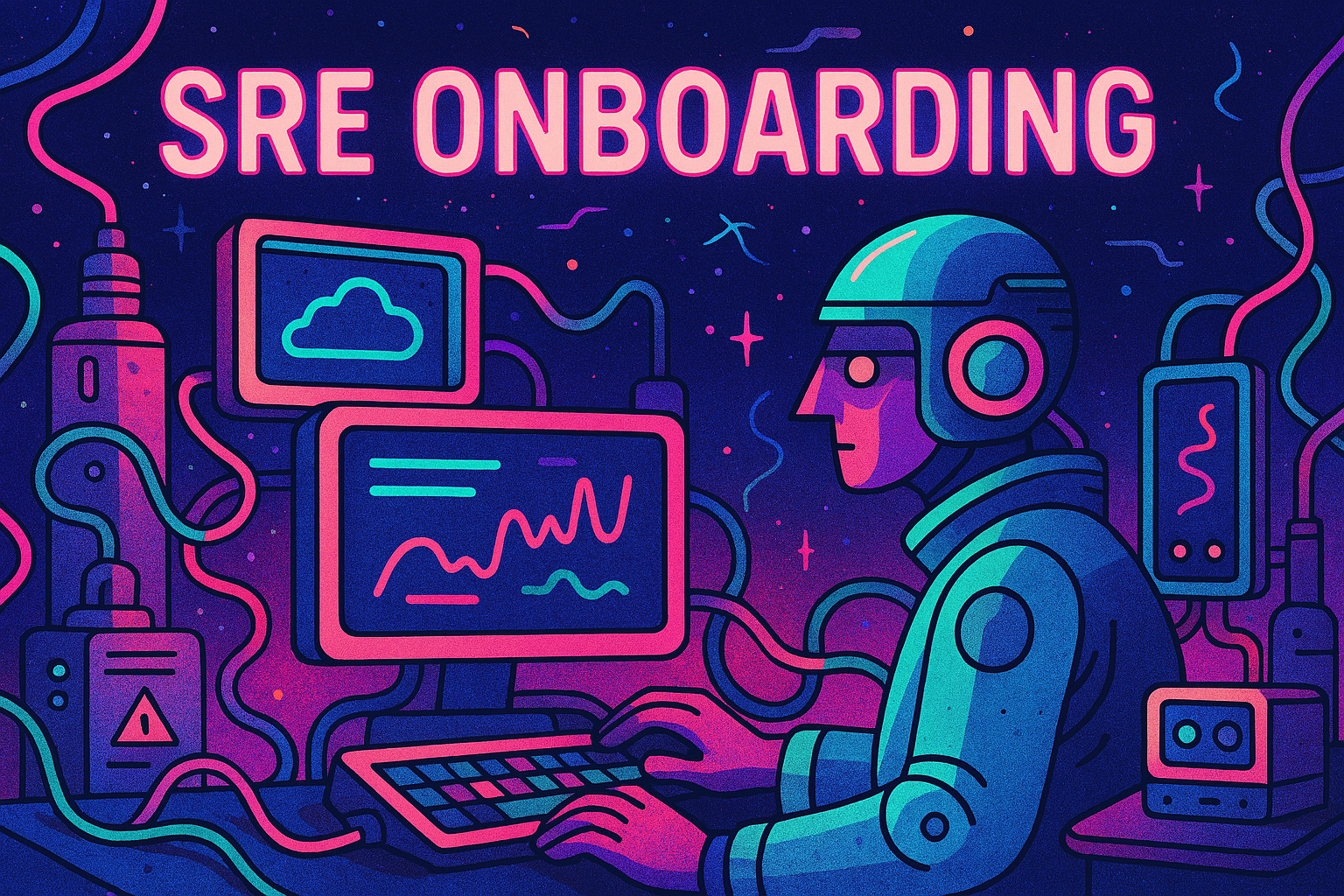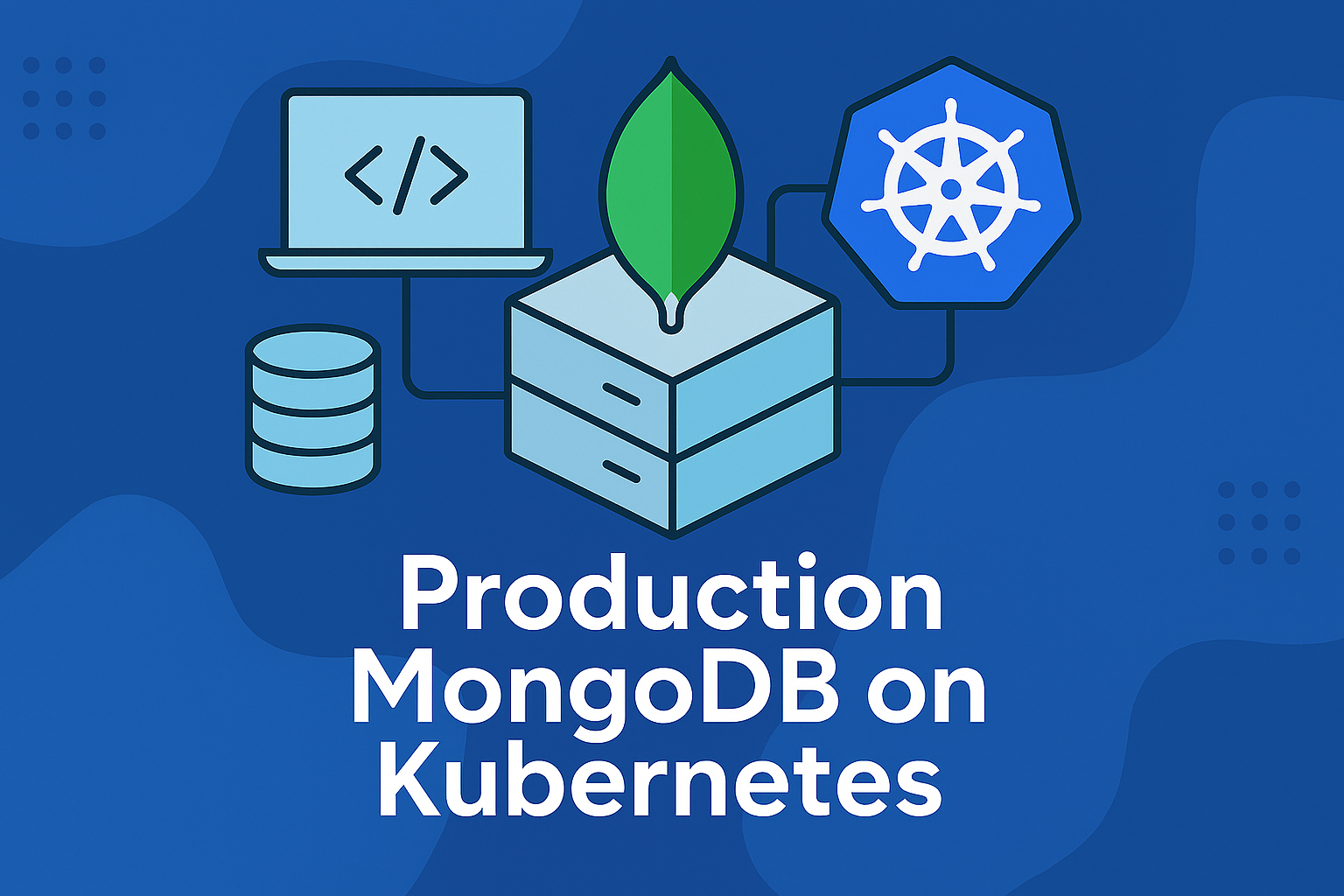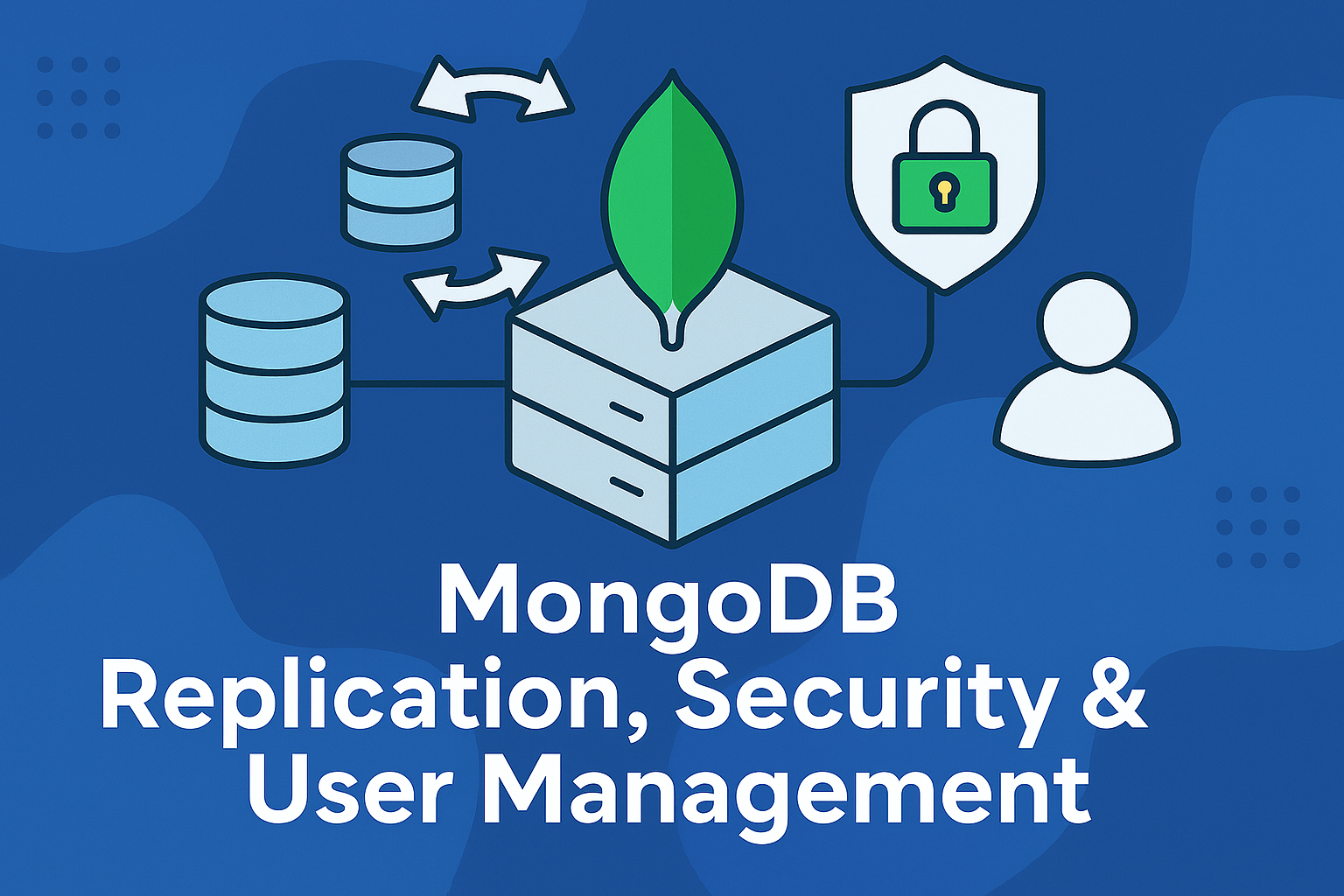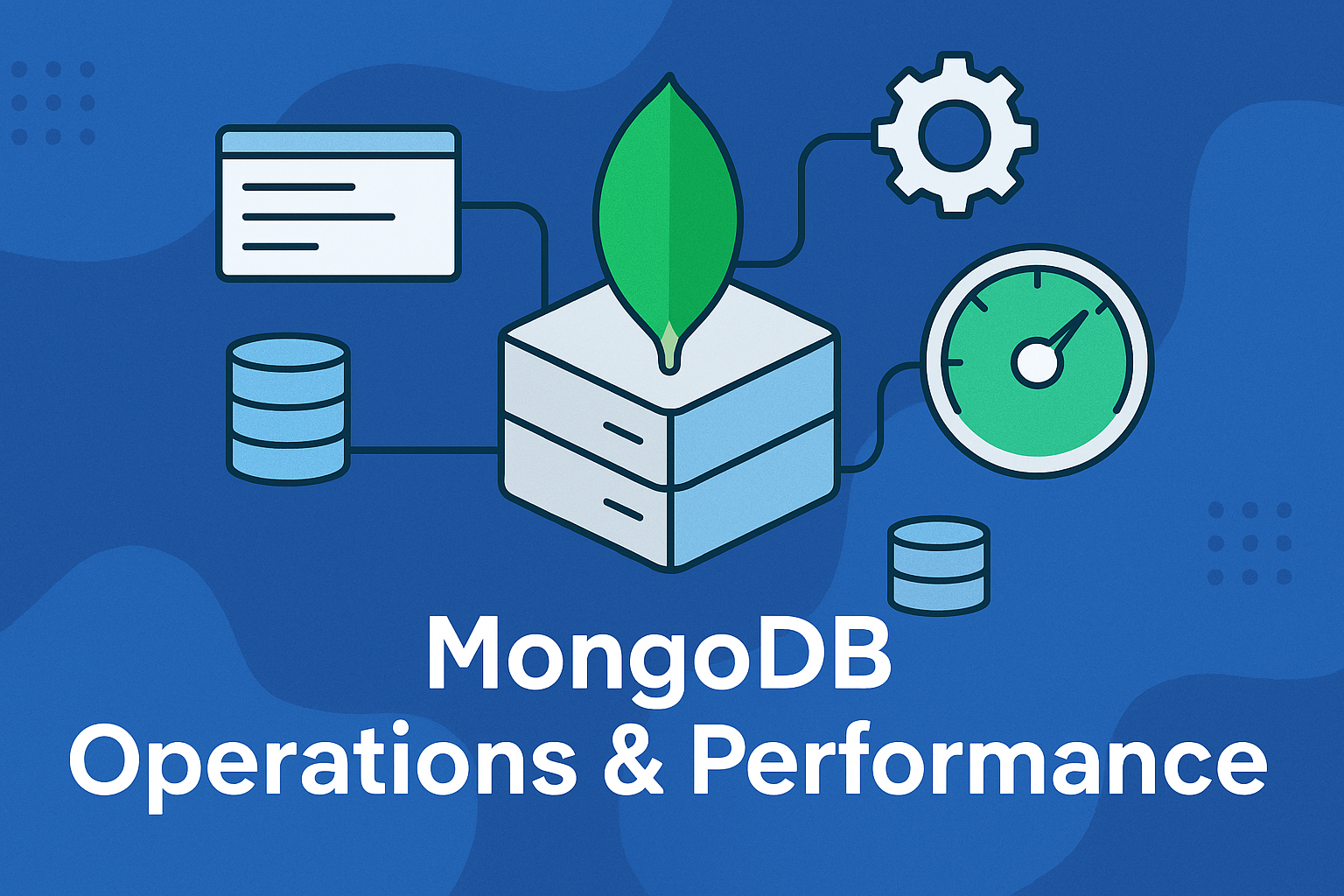Introduction: Your Journey to Becoming an SRE
Site Reliability Engineering (SRE) is a discipline that combines software engineering with operations expertise to build and maintain highly reliable, scalable systems. As a junior SRE, you’ll be responsible for ensuring service reliability, automating operational tasks, and bridging the gap between development and operations teams.
This comprehensive learning path will take you from foundational programming skills through the core technologies that power modern infrastructure. Each step builds upon the previous one, preparing you for real-world SRE challenges including:
- Automation: Writing scripts and tools to eliminate toil
- Infrastructure as Code: Managing cloud resources programmatically
- Container Orchestration: Deploying and scaling applications reliably
- Observability: Monitoring, alerting, and debugging production systems
- Incident Response: Responding to and learning from service disruptions
Whether you’re transitioning from development, operations, or starting fresh in tech, this roadmap provides the essential knowledge and resources you need.
The 8-Step Learning Path
1. Python: Your Foundation for Automation
Why it matters for SRE: Python is the lingua franca of SRE work. You’ll use it daily for automation scripts, data analysis, API integrations, and building internal tools. Its readability and vast ecosystem make it ideal for solving operational problems quickly.
Core competencies:
- Writing clean, maintainable scripts
- Working with APIs and JSON data
- Data manipulation and analysis
- Error handling and logging
- Testing and debugging
Recommended resources:
📕 Books:
- Python Crash Course - Best introductory book, hands-on approach
- Automate the Boring Stuff with Python - Perfect for automation tasks
💻 Online courses:
- Codecademy: Learn Python 3 - Interactive browser-based learning
- DataCamp: Introduction to Python - Focus on data manipulation
SRE application: Writing deployment scripts, log parsers, monitoring integrations, incident response tools
2. Bash: Mastering the Command Line
Why it matters for SRE: The Unix shell is your primary interface to production systems. Bash proficiency enables you to troubleshoot issues quickly, write robust automation scripts, and navigate complex server environments with confidence.
Core competencies:
- Navigating filesystems and managing processes
- Text processing with grep, sed, awk
- Writing robust shell scripts
- Understanding pipes, redirects, and exit codes
- SSH and remote system management
Recommended resources:
📕 Books:
- The Linux Command Line by William Shotts - Comprehensive guide from basics to scripting
💻 Online courses:
- Udemy: Bash Mastery - Deep dive into shell scripting
SRE application: Troubleshooting production issues, writing deployment scripts, log analysis, system health checks
3. Docker: Understanding Containerization
Why it matters for SRE: Containers are the building blocks of modern infrastructure. Understanding Docker is essential for deploying applications consistently, debugging container issues, and optimizing resource usage.
Core competencies:
- Building efficient Docker images
- Understanding container networking and storage
- Multi-stage builds and layer optimization
- Debugging running containers
- Docker Compose for local development
Recommended resources:
🗺️ Roadmaps:
- Docker Roadmap - Comprehensive learning path
🎬 Video tutorials:
- TechWorld with Nana: Docker Tutorial - Excellent visual introduction
📕 Books:
- Docker: Up & Running - O’Reilly’s comprehensive guide
SRE application: Application deployment, local development environments, CI/CD pipelines, resource isolation
4. Kubernetes: Orchestrating at Scale
Why it matters for SRE: Kubernetes is the de facto standard for container orchestration. As an SRE, you’ll manage Kubernetes clusters, deploy applications, troubleshoot pod issues, and ensure high availability.
Core competencies:
- Understanding pods, deployments, services, and ingress
- Managing cluster resources and scaling
- ConfigMaps, Secrets, and configuration management
- Debugging with kubectl and logs
- Understanding networking and service discovery
Recommended resources:
🗺️ Roadmaps:
- Kubernetes Roadmap - Structured learning path
💻 Online courses:
- Udemy: Kubernetes Mastery by Zeal Vora
- freeCodeCamp: Kubernetes Course - 4-hour comprehensive tutorial
📕 Books:
- Kubernetes: Up & Running - O’Reilly’s definitive guide
SRE application: Application deployment, auto-scaling, health monitoring, zero-downtime deployments, disaster recovery
5. Machine Learning Fundamentals
Why it matters for SRE: While not all SRE roles require ML expertise, understanding ML fundamentals helps you support ML infrastructure, optimize model serving, and troubleshoot data pipeline issues. This is especially relevant for SREs working at AI-focused companies.
Core competencies:
- Understanding ML concepts (training, inference, models)
- Data preprocessing and feature engineering
- Model evaluation metrics
- Common ML frameworks (TensorFlow, PyTorch, scikit-learn)
- Computational resource requirements
Recommended resources:
💻 Online courses:
- Open ML Course - Free comprehensive ML course
- Applied ML and AI for Engineers by Cloud Guru Data Lab
📕 Books:
- Hands-On Machine Learning - Practical approach with scikit-learn and TensorFlow
SRE application: Supporting ML infrastructure, GPU resource management, model serving optimization, data pipeline reliability
6. MLOps Principles
Why it matters for SRE: MLOps bridges the gap between ML development and production operations. Understanding these principles helps you build reliable ML systems, implement proper versioning, and maintain model performance in production.
Core competencies:
- ML pipeline architecture
- Model versioning and registry
- Experiment tracking and reproducibility
- Continuous training and evaluation
- Model monitoring and drift detection
Recommended resources:
📕 Books:
- Designing Machine Learning Systems by Chip Huyen - Industry best practices
- Introducing MLOps by Mark Treveil - Comprehensive guide to ML operations
💻 Online resources:
- Dataiku MLOps Guide - Platform-agnostic principles
SRE application: Building reliable ML pipelines, implementing model monitoring, managing ML infrastructure, ensuring reproducibility
7. MLOps Components and Tools
Why it matters for SRE: Understanding the MLOps tooling ecosystem enables you to build, deploy, and maintain production ML systems. These tools handle everything from data versioning to model serving.
Core competencies:
- Feature stores and data versioning
- Experiment tracking (MLflow, Weights & Biases)
- Model deployment patterns
- Monitoring and observability for ML
- CI/CD for ML systems
Recommended resources:
💻 Practical guides:
- Made with ML by Goku Mohandas - Production ML from scratch
- Full Stack 7-Steps MLOps Framework by Paul Iusztin - End-to-end implementation
🗺️ Tool landscapes:
- MLOps Landscape - Comprehensive tool overview
SRE application: Implementing feature stores, model serving infrastructure, A/B testing frameworks, ML observability
8. Terraform: Infrastructure as Code
Why it matters for SRE: Terraform is the industry standard for managing cloud infrastructure. It enables you to version, review, and automate infrastructure changes, making systems more reliable and repeatable.
Core competencies:
- Writing Terraform configurations (HCL)
- State management and backends
- Modules and code reusability
- Multi-environment deployments
- CI/CD for infrastructure changes
Recommended resources:
📕 Books:
- Terraform: Up and Running by Yevgeniy Brikman - Definitive guide, 3rd edition
🎬 Video tutorials:
- freeCodeCamp: Terraform Course - Comprehensive beginner tutorial
💻 Official resources:
- HashiCorp Learn Terraform - Interactive tutorials from the creators
SRE application: Managing cloud infrastructure, implementing disaster recovery, ensuring environment parity, infrastructure versioning
Your Learning Strategy
Recommended approach:
- Start with Python and Bash (Weeks 1-4) - These are foundational for everything else
- Move to containers (Weeks 5-8) - Docker first, then Kubernetes
- Add infrastructure skills (Weeks 9-12) - Terraform for managing it all
- Specialize in ML (Weeks 13-20) - If working with ML infrastructure
Tips for success:
- Hands-on practice: Build projects, not just tutorials
- Document your learning: Blog posts help solidify knowledge
- Join communities: Reddit’s r/sre, SRE Slack groups, local meetups
- Break things safely: Spin up test environments and experiment
- Ask questions: Senior SREs love helping motivated learners
Beyond the Basics
Once you’ve completed this learning path, consider expanding into:
- Observability: Prometheus, Grafana, distributed tracing
- Incident Management: PagerDuty, incident response processes
- Security: Application security, secrets management, compliance
- Cost Optimization: FinOps, resource right-sizing
- Networking: Load balancers, CDNs, DNS, service mesh
Community-Driven Learning Resources
We’re building a community collection of SRE learning resources. Have a favorite course, book, or tutorial that helped you? We’d love to hear about it.
Future Plans: SRE Learning Resource Hub
We’re planning to create a dedicated section on the site for SRE training and onboarding resources. This community-driven hub will include:
Resource Collection:
- Curated library of courses, books, tutorials, and certifications
- Community ratings and reviews for each resource
- Difficulty levels (Beginner, Intermediate, Advanced)
- Topic tags (Kubernetes, Observability, Incident Response, etc.)
- Cost indicators (Free, Paid, Freemium)
Onboarding Paths:
- Role-specific learning tracks (Junior SRE, Platform Engineer, DevOps Engineer)
- Company-specific onboarding templates
- Time estimates and completion tracking
- Prerequisites and recommended sequences
Community Contributions:
- Real-world project ideas from practicing SREs
- Case studies and war stories
- Interview preparation guides and questions
- Career progression roadmaps
How to Submit Resources:
While we’re still building this system, you can suggest resources in several ways:
GitHub Issues: Submit a resource suggestion as an issue in our GitHub repository with the label “SRE-Resource”
Email Submission: Send your suggestions to [placeholder - configure email] with:
- Resource name and URL
- Category (book, course, video, blog, tool)
- Brief description (why it’s valuable)
- Difficulty level
- Your experience with it (optional)
Pull Requests: Technical contributors can submit PRs adding resources to a dedicated YAML/JSON data file (coming soon)
Submission Guidelines:
- Resources should be relevant to SRE practices and principles
- Include accurate, up-to-date links
- Provide context on target audience (junior vs. senior)
- Disclose any affiliations or sponsorships
- Respect licensing and copyright
Coming Soon:
- Web form for easy resource submission
- Voting system for community favorites
- Search and filter functionality
- Newsletter with curated monthly picks
- Study group matching system
Stay tuned as we develop this platform. Your contributions will help build the most comprehensive SRE learning resource collection available.
Final Thoughts
The journey to becoming a proficient SRE takes time, but each step makes you more valuable and capable. Focus on building a strong foundation, practice consistently, and don’t be afraid to ask for help.
Remember: Every senior SRE started exactly where you are now. The difference between them and a junior SRE isn’t talent—it’s time, practice, and persistence.
Welcome to the SRE community. Now let’s build some reliable systems.




Comments